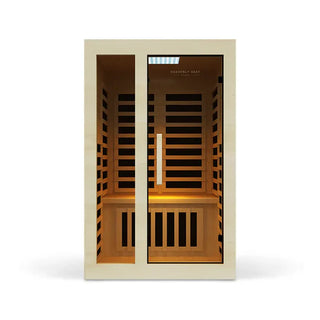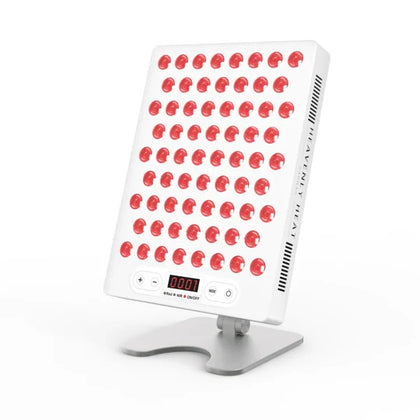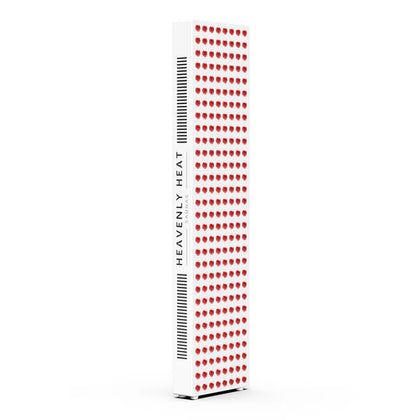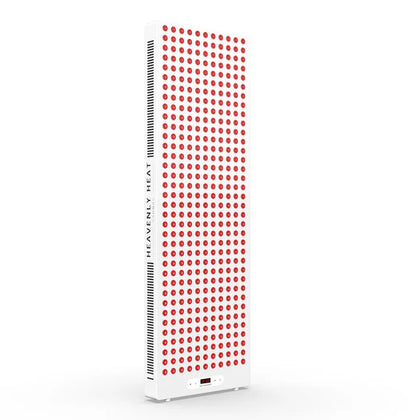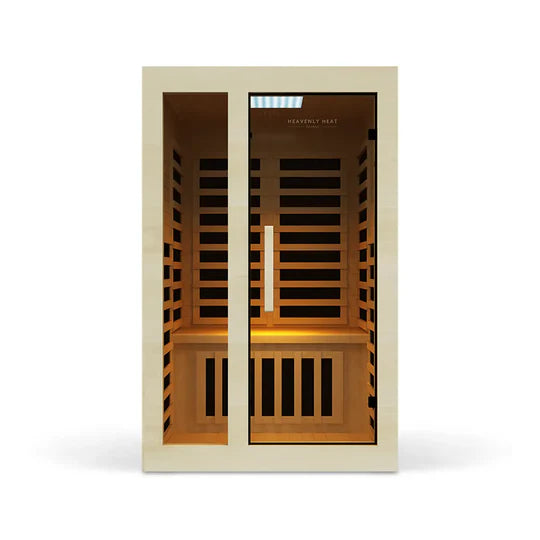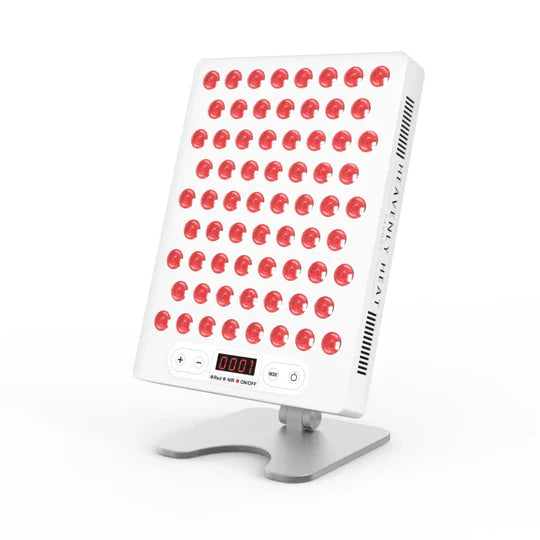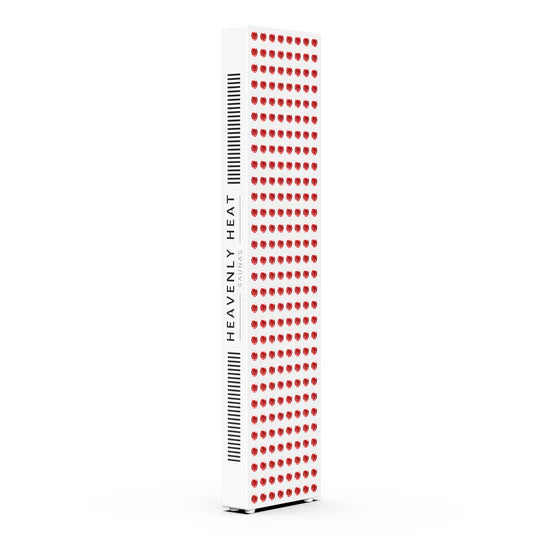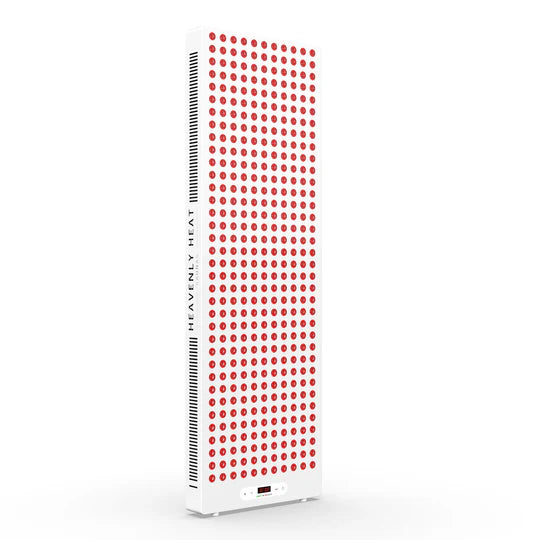Can You Run a Sauna on Solar Panels?

Thinking about running your sauna on solar power? It’s totally possible, but you need to know how much energy a sauna uses and what kind of solar setup you’ll need.
This guide breaks down everything, from solar panels to batteries, so you can enjoy a warm sauna while saving money and protecting the planet.
Table of contents
Key Takeaways
-
Running a sauna on solar panels is possible but needs a large system and battery storage for off-grid use.
-
Solar power can cut your sauna’s electricity bills and pays off over time with lower operating costs.
-
Using solar energy makes your sauna eco-friendly by reducing your carbon footprint and reliance on fossil fuels.
-
Battery storage and proper insulation are essential to keep your sauna running efficiently day and night.
-
Regular maintenance of panels, batteries, and sauna components ensures reliable, long-lasting solar-powered sauna performance.
Can You Really Run a Sauna on Solar Panels?
- You can run a sauna on solar panels if the system is big enough: Running a sauna with solar power is possible, but a typical sauna needs a lot of energy, around 6 to 9 kilowatts to heat up. To handle that, your solar setup should be powerful, usually 3 to 5 kilowatts or more.
- A battery is needed if you want to use the sauna at night or on cloudy days: Solar panels only work when the sun is out, so if you want to use your sauna when it’s dark or cloudy, you'll need batteries. They store extra energy during the day so your sauna can run anytime.
- Solar power drops when the weather is bad, so plan for that: In winter or during cloudy days, solar panels make less electricity. If you want your sauna to keep working smoothly, you have to plan for those days and make sure your system can handle the dip in power.
Why Consider Solar Power for Your Sauna?
Lower Operating Costs by Reducing or Eliminating Your Sauna’s Electricity Bills
- Solar Power Cuts Your Sauna’s Electricity Bills: Switching your sauna to solar power can save you a lot on electricity bills. Solar panels generate free energy from the sun, so you won’t have to rely on costly grid electricity as much.
- Solar Energy Saves You Money Over Time: Solar power helps you save money in the long run. Many sauna owners find that solar panels pay for themselves within a few years, depending on local energy prices and sunlight.
- Solar Power Means Lower Maintenance Costs: Using solar power usually means you spend less on keeping your sauna running because solar systems require less maintenance than traditional electricity.
- Solar Is Especially Good for Outdoor Saunas: If your sauna is outdoors, solar power can help reduce higher energy costs, making it easier to keep your sauna running without big electricity bills.
Sustainable Energy Use Protects Environment with Clean, Renewable Solar Power
- Clean Power Reduces Pollution: Using solar panels for your sauna helps lower pollution by avoiding harmful emissions.
- Solar Is a Renewable Energy Source: Solar power comes from the sun, making it a clean and endlessly renewable option.
- No Greenhouse Gases Means a Healthier Planet: Unlike fossil fuels, solar doesn’t emit greenhouse gases that drive climate change.
- Smaller Carbon Footprint, Bigger Environmental Impact: Powering your sauna with solar shrinks your carbon footprint and supports sustainability.
- Works Even in Cold Climates: Solar energy is strong and reliable enough to power saunas, even in cooler regions.
- Eco-Friendly Without Sacrificing Performance: Solar is ideal for sauna lovers who want to stay green while enjoying full performance.
Off-Grid Capability Lets You Run Your Sauna Anywhere Without Grid Access
- Solar power lets you enjoy your sauna even without electricity: You don’t need grid access to use your sauna when it runs on solar energy, making it perfect for remote locations.
- Portable solar panels make remote sauna use possible: These lightweight panels can power your sauna in the middle of nature, no need for power lines.
- Battery storage keeps your sauna running when there’s no sunlight: Even after sunset, a good battery system stores enough energy so your sauna stays hot and ready.
- Off-grid sauna setups are easier to move than you think: With portable solar gear, setting up or relocating your sauna is surprisingly simple.
- A well-sized battery system keeps your sauna smooth and steady: Choosing the right battery size means your sauna will always have the energy it needs, even in off-grid spots.
- You can relax in your sauna almost anywhere, anytime: Solar power gives you the freedom to enjoy sauna time wherever life takes you, without needing a single outlet.
Energy Independence Gives Freedom from Utility Companies and Rising Energy Prices
Solar power gives you control over your sauna’s energy , freeing you from utility companies and unpredictable bills.
When you generate your own power, you don’t have to worry about rising electricity costs or outages.
This independence means steady, predictable expenses. Solar systems reduce your reliance on the grid , which also helps you avoid fluctuating energy prices. Over time, this control can lead to big financial benefits.
Increased Property Value Adds Appeal and Boosts Your Home’s Market Price
- A solar sauna makes your home more attractive to buyers: People are more likely to notice and prefer homes that include solar-powered features like a sauna. It adds a touch of luxury while saving energy.
- Solar features help your home sell for more money: Adding solar panels can increase the resale price of your home by thousands of dollars because buyers know they’ll save on energy bills.
- Real estate agents see solar saunas as a strong selling point: Agents often recommend adding features like a solar sauna because it helps your home stand out in a crowded market.
Low Maintenance Solar Systems Require Minimal Upkeep and Save You Time
- Easy Cleaning Keeps Solar Panels Running Smoothly: Solar panels only need occasional cleaning, once or twice a year, to stay efficient. This low-effort upkeep saves you time and ensures your sauna works without interruptions.
- No Need for Frequent Servicing: Unlike traditional sauna heating systems that may require regular maintenance, solar-powered setups operate with minimal intervention, freeing you from constant servicing schedules.
- Hassle-Free Operation Means More Time to Relax: Solar saunas run reliably without the need for daily checks or adjustments. You can enjoy your sauna sessions without worrying about system performance.
- Fewer Repairs Equals Less Stress: With fewer moving parts and a simple design, solar systems reduce the chances of breakdowns. That means fewer repairs, less stress, and more peace of mind.
- Low Maintenance Is Why Many Choose Solar: For sauna owners, the low maintenance demands of solar power are a major advantage. It’s a key reason why more people are making the switch to solar-powered relaxation.
Incentives and Rebates Help Lower Solar Installation Costs Significantly
- Government Incentives Make Solar Affordable: Many governments provide incentives and rebates that significantly lower the cost of installing solar panels. These programs aim to make solar energy more accessible and affordable for homeowners.
- Federal Tax Credits Cover Major Costs: Federal tax credits can cover a large portion of your solar installation expenses, greatly reducing your upfront investment.
- State and Local Rebates Add Extra Savings: In addition to federal credits, state-specific rebates and local financial programs provide additional cost reductions, further lowering your total expenses.
- Combining Incentives Shortens Payback: Time When these incentives are combined, they can reduce your initial costs considerably. This helps shorten the break-even period and makes switching your sauna to solar power a financially smart decision.
- Check Local Incentives for Maximum Benefit: Incentives vary widely by location, so it’s important to check which programs apply in your area to maximize your savings.
How Much Electricity Does a Sauna Consume?
A typical sauna uses about 6 to 9 kilowatt-hours (kWh) per hour , depending on size and heater type.
Most electric sauna heaters run between 4.5 to 9 kilowatts , with traditional Finnish saunas generally using more energy than infrared models .
It takes roughly 30 to 45 minutes to warm up a sauna , using the most power during this time. On average, a home sauna might use around 20 to 30 kWh each week , depending on frequency of use.
How Many Solar Panels Are Needed to Run a Sauna?
Running a sauna typically requires around 6,000 watts for an electric heater. To power this with solar panels, calculate your sauna usage hours and multiply by power consumption to find total energy needs.
For example, running the sauna for two hours uses about 12 kWh. Since a standard solar panel produces roughly 300 watts, you’d need around 8 to 10 panels to meet this demand, depending on sunlight availability.
What Size Battery Is Needed for a Solar Sauna Setup?
To size the battery, multiply the sauna heater’s wattage by daily usage hours. Batteries shouldn’t be discharged fully, so consider depth of discharge limits to prolong battery life .
Make sure the battery capacity is enough to support your sauna use reliably and allow for efficient recharging from your solar panels.
What Type of Inverter Do You Need for a Solar Sauna?
Choose an inverter with capacity slightly higher than your sauna’s peak power to handle startup surges.
A pure sine wave inverter is essential for providing clean, stable electricity that protects heating elements.
For grid-connected systems, use a grid-tie inverter ; for off-grid, an off-grid or hybrid inverter is best . Hybrid inverters work well when combining solar power with battery storage.
DIY Tips for Setting Up a Solar-Powered Sauna System
Pick the Best Location with Maximum Sunlight Exposure for Solar Efficiency
Choose a sunny spot with at least five to six hours of direct sunlight daily. Avoid shade from trees or buildings, and orient panels facing south (in the northern hemisphere) to maximize solar exposure.
Install High-Efficiency Solar Panels to Maximize Energy Capture and Output
Use high-efficiency solar panels and mount them at the correct angle (close to your latitude) to capture the most energy. Keep panels clean and shaded areas minimal.
Set Up Battery Storage to Store Excess Solar Energy for Night Use
Install lithium-ion batteries in a cool, dry, and ventilated place to store excess energy for nighttime use. Regularly maintain batteries to ensure longevity.
Use a Solar-Compatible Sauna Heater Designed for Efficient Solar Power Use
Choose heaters designed for efficient solar use, which balance energy production and consumption well.
Ensure Proper Insulation to Retain Heat and Reduce Energy Consumption
Good insulation keeps heat inside your sauna and lowers energy needs . Materials like mineral wool or foam boards work well to trap heat .
The thicker the insulation, the better it holds warmth, around 3 to 6 inches is usually enough . Install insulation carefully, covering all walls, floors, and ceilings without gaps to stop heat from escaping.
Add a Ventilation System to Maintain Fresh Air and Control Humidity
Use materials like mineral wool or foam boards (3 to 6 inches thick) with vapor barriers to retain heat and reduce energy use.
Choose Sustainable Building Materials to Reduce Environmental Impact and Increase Durability
Use eco-friendly woods like cedar or spruce, recycled materials, and non-toxic finishes to reduce environmental impact and increase durability.
What Maintenance Is Required for a Solar Sauna Setup?
Clean and Inspect Solar Panels Regularly to Maximize Energy Efficiency
- Cleaning panels keeps energy high: Solar panels work best when clean and free from dust and debris. Clean them every few months or more often if your area is dusty. Use a soft brush or sponge with water, and avoid harsh chemicals or rough tools that can damage the surface.
- Checking panels helps spot problems early: Look over your panels regularly for cracks, color changes, or loose wires. If you see dark spots or broken parts, it means the panels need fixing to keep working well.
- Dirt on panels lowers sauna heat: When panels are dirty, less sunlight gets through, so the power drops. This can stop your sauna from heating properly.
Monitor Battery Health and Charge Levels to Ensure Reliable Power Storage
- Weekly Battery Level Checks for Reliable Power: Check your solar sauna’s battery levels weekly to keep power steady. Use a simple multimeter or a battery monitor to see voltage and charge status clearly.
- Recognizing Battery Problems Early: Watch for signs of battery trouble like slow charging, rapid discharge, or swelling to avoid unexpected power loss.
- Maintaining Optimal Battery Charge Range: Keeping your battery charged between 20% and 80% helps it last longer by reducing stress on its cells.
- Avoiding Deep Discharges to Preserve Battery Life: Deep discharges hurt battery life by stressing cells, so avoid running the battery completely down.
- Using a Charge Controller for Battery Protection: A charge controller protects batteries from over-discharge, ensuring your sauna stays ready for a warm session every time.
Check Inverter and Electrical Wiring to Prevent System Failures and Safety Issues
- Checking the inverter every month helps you avoid sudden sauna shutdowns: Inspect your inverter once a month to catch problems early. If it shows error codes, makes weird noises, or won’t turn on, it might be failing.
- Tightening loose wires can stop power cuts and system faults: Loose connections inside the inverter can cause power loss or short circuits. Make sure all wires are firmly secured to keep everything running smoothly.
- Turning off the power before checking wires keeps you safe: Always shut down the system before touching any electrical parts. This simple step protects you from electric shocks while inspecting or fixing issues.
- Finding damaged wires early can save your sauna from bigger problems: Look for corrosion, frayed wires, or discoloration, these are signs something’s wrong. Fixing them early avoids more serious electrical trouble later.
- Grounding the system right protects both the inverter and the people using the sauna: Proper grounding keeps electricity flowing safely and prevents faults that could harm your equipment or anyone using the sauna.
Maintain and Test Heater Elements for Consistent Sauna Heating Performance
- Checking the heater often helps it heat properly: Check your sauna heater elements every few months for signs of damage like dark spots or uneven heating. This helps the sauna stay warm and work right.
- A weak or broken heater makes the sauna feel cold: If your sauna is heating slowly or not at all, one of the elements might be broken and needs to be replaced.
- Testing with a multimeter tells you if the heater still works: You can use a multimeter to check the electrical resistance in the heater. This tells you if it's still doing its job correctly.
- Cleaning off dust helps the heater work better: Dust and dirt on the heating elements can make them less effective. Keeping them clean helps the sauna heat up faster and more evenly.
- Regular testing avoids surprise problems: Checking the heater regularly helps you catch small issues early and stops the sauna from breaking down when you want to use it.
Treat and Clean Sauna Wood to Protect Against Moisture and Extend Longevity
- Regular Cleaning Keeps Sauna Wood Strong: Clean your sauna wood monthly to prevent moisture buildup and bacterial growth that weaken the wood over time. Use gentle, non-toxic cleaners like diluted vinegar or sauna-specific wood sprays to avoid chemical damage.
- Use Natural Oils to Seal and Protect Wood: Apply natural oils like linseed or tung oil properly to create a moisture-resistant seal that boosts wood durability and lifespan.
- Watch for Damage and Act Fast: Keep an eye out for signs of water damage such as dark spots, warping, or mold. Quick action helps stop further deterioration.
- Remove Mold to Keep Wood and Air Fresh: If mold or mildew appears, clean it with a soft brush and mild solution. This maintains both the wood’s quality and the sauna’s hygiene.
Ensure Proper Ventilation and Airflow to Maintain Air Quality and Prevent Mold
- Keep Vents Clear to Let Air Flow Freely: Check sauna vents regularly to ensure they remain clear and open. Clogged or blocked vents trap stale air and excess moisture, which can reduce air quality and increase the risk of mold buildup.
- Poor Ventilation Makes Saunas Unhealthy: Trapped moisture from blocked vents creates a humid environment that encourages mold growth. This not only damages your sauna but also makes it less safe and less enjoyable to use.
- Use Natural Airflow After Each Use: Let fresh air circulate by opening windows or using cross-ventilation techniques after each sauna session. This helps remove moisture and keeps the air fresh and breathable.
- Airing Out Prevents Mold and Extends Sauna Life: Regularly airing out your sauna prevents mold and protects the wood and equipment from damage caused by trapped humidity.
- Clean Vents Often for Smooth Ventilation: Dust and debris can build up, especially in outdoor saunas. Keeping vents clean ensures proper airflow and helps maintain the overall health and efficiency of your sauna setup.
Prepare for Seasonal Weather Changes to Protect the System from Damage
- In winter, protect your sauna parts from freezing: Cold temperatures can damage your batteries and pipes. To avoid this, insulate them well and disconnect any parts that might freeze.
- Snow blocks sunlight and adds dangerous weight: If snow piles up on your solar panels, it stops sunlight from reaching them and can cause cracks or breaks. Clear it off gently and often.
- Too much summer heat can wear out solar panels: Strong sun and high temperatures can overheat your system. Try to provide some shade so the components don’t get damaged over time.
- Flooding and heavy rain can ruin your setup if it’s not raised: Water can reach electrical parts and damage the wooden frame. Build on a raised platform and make sure everything is waterproofed.
- Moist air during the year can slowly weaken the wood: Seasonal moisture can make wood bend or rot. Regular checks and protective treatments keep the frame strong in all weather.
FAQs
How does weather variability affect the performance of a solar-powered sauna?
Weather impacts solar sauna efficiency: sunny days enable quick heating, while cloudy, rainy, or winter days reduce solar output and slow warming. Smart battery storage can help buffer energy for use during low sunlight.
What are the safety considerations when installing solar panels near a sauna?
Ensure all wiring is dry, sealed, and properly grounded. Use heat-resistant materials and waterproof enclosures to protect solar components from sauna heat and humidity. Place batteries away from heat sources and ensure proper ventilation.
Can solar-powered saunas be integrated with smart home systems for better energy management?
Yes. Smart home systems can schedule sauna preheating during peak sunlight, track energy use, and integrate voice or app control. This helps optimize energy efficiency and convenience.
Are there specific solar panel technologies better suited for sauna installations?
Monocrystalline panels are best for efficiency and heat tolerance, while bifacial panels can boost energy in reflective areas. Thin-film panels offer flexibility but usually don’t meet sauna power needs. Outdoor-rated panels resist heat and humidity better, ensuring durability.




